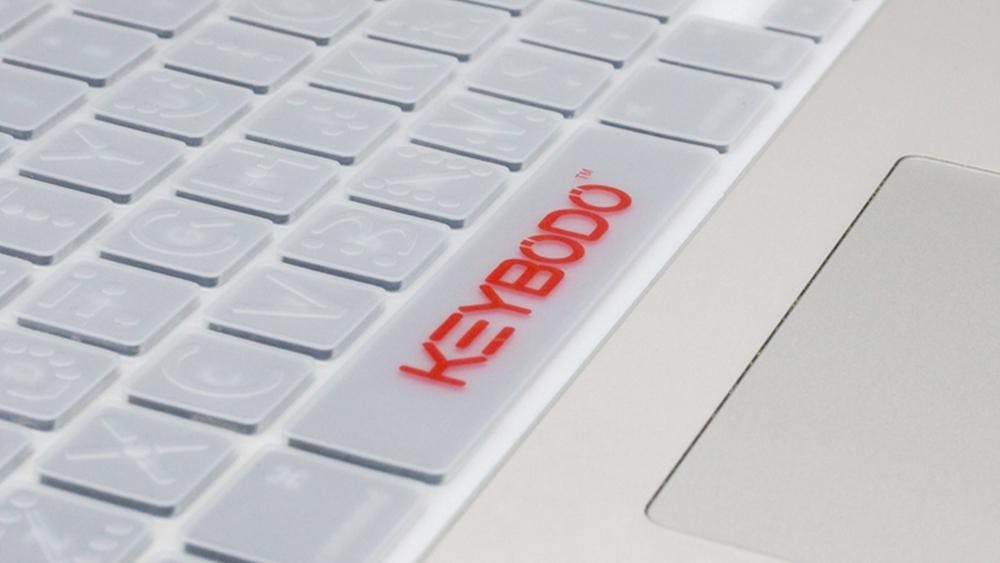After winning first place at the University of Richmond's annual Business Pitch Competition, two students traveled to Charlottesville, Virginia, to compete in the College Cup, which is part of the annual Tom Tom Founders Festival hosted by the University of Virginia.
Will Klingner, RC '17, and Jeff Weinert, RC '17, represented UR as they competed against students from four other Virginia schools. They received second place for their product, KEYBODO -- a keyboard that is designed to improve digital literacy and typing.
“The idea came to us when we were in class one day, and we noticed that all other students were typing their notes while we were writing ours by hand,” Klingner said in an email. “We wondered why we preferred writing our notes by hand and why we found it to be better.”
Klingner and Weinert began to research how handwriting led to more creative communication, better problem solving and deeper critical thinking. This led to the inspiration for KEYBODO.
“We knew that we had to apply defining characteristics of handwriting-tactile character recognition to the keyboard,” Klingner said.
The keycaps are designed with bumps and ridges that mimic the shape of the letter. For example, when the letter “A” is typed, the user will feel the shape of the letter.
Klingner and Weinert began by making keycaps using a 3D printer and then stuck them on laptops.
“Over time, we carefully changed the design of the keycaps, giving each key a unique set of bumps and ridges, similar to Braille, which made it tactilely different than the keys around it,” Weinert said. “Our goal was for typists to feel letters as they saw them appear on the screen.”
Klingner and Weinert first began creating prototypes for KEYDOBO around two years ago. They took the prototype to five different local elementary school classrooms to test their keyboard models. Klingner explained that they had started at Saint Christopher’s School where they saw a 40 percent decrease in typing error with students who used the KEYDOBO keyboards.
“That was the test that made us realize we had something real,” Klingner said. “Our high point was when we tested in a Collegiate School fourth grade class and saw a 64 percent improvement in adjusted words per minute.”
The feedback for the product was so positive in the classroom that a student in another class heard about the keyboards and became Klingner and Weinert’s first customer.
“The KEYBODO team has hit upon a compelling value proposition -- use our product and type faster and more accurately,” Eric Martin, director of the innovation and entrepreneurship program at the E. Claiborne Robins School of Business, wrote in an email. “There is social science and real world data to support Klingner and Weinert’s premise that demonstrates KEYBODO is the real deal.”
Enjoy what you're reading?
Signup for our newsletter
The company just made a keyboard cover that will serve to improve note-taking on MacBooks. The cover is currently being sold in the UR Spider Shop, as well as on the KEYDOBO website. Weinert said that the product would primarily be sold to schools.
After graduation, Klingner and Weinert will be working on their company full-time in Richmond. They have an office and warehouse space set up currently, and will be hiring two full-time interns.
Contact news writer Candace Hino at candace.hino@richmond.edu.
Support independent student media
You can make a tax-deductible donation by clicking the button below, which takes you to our secure PayPal account. The page is set up to receive contributions in whatever amount you designate. We look forward to using the money we raise to further our mission of providing honest and accurate information to students, faculty, staff, alumni and others in the general public.
Donate Now



